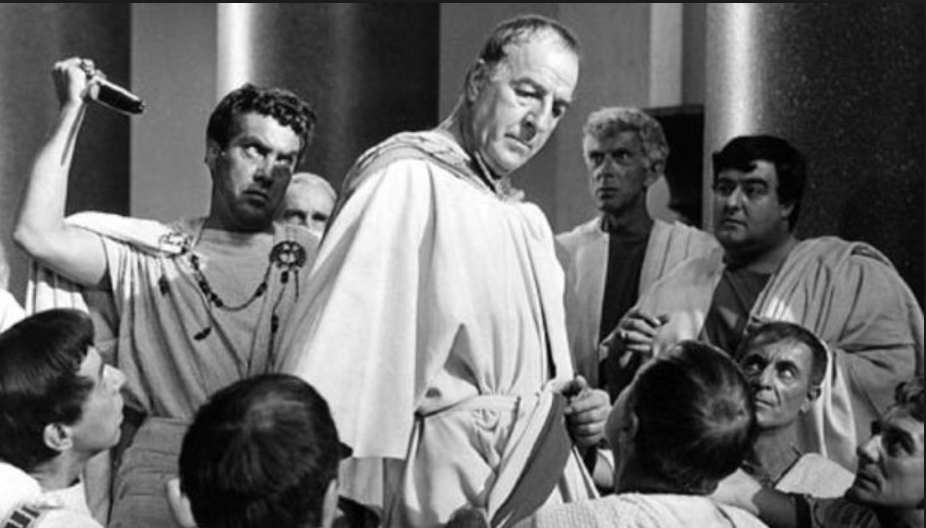March 15th - The Ides of March and the Date of Doom

Politicians and up-and-comers should understand that what is old is new, and what is “new’” has probably occurred once or twice in our lifetimes.
What does the term Ides of March really mean?
We have all been exposed to Shakespeare’s version of Julius Caesar, and we have waxed poetically about the seer’s alleged dire warning to the Roman “Dictator in Perpetuity” - beware the Ides of March. However, many do not really understand the historical significance of this term or the modern translations of this event. I do not consider myself a historian or Ph.D. in Roman History, but life experiences, and a modest amount of reading, afford me the ability to, however slightly, appreciate some of these life-changing events and how they shape and continue to influence our democracy and modern-day politics.
The circumstances around the killing of Julius Caesar can be traced to a critical point in time where one individual tried to dominate and ultimately fail. This narcissistic behavior and its consequences can serve as life lessons for us all.
If we understood some of the past, we might be better trained to handle our political future. As I am prone to do, allow me to steal a line from the legendary political consultant, David Murray – sometimes we need to sit back and exhale and think about where we are going by viewing where we have been.
I once harbored this notion that those of us who sat in the chairs of the legislature, particularly in the so-called House of Lords (State Senate), are the ones who actually helped govern. That is true to some extent. The modern day legislature in New Jersey has an awesome array of powers and proudly labels itself as a co-equal branch of government. However, as I moved on in my life, I found that modern day legislators could be more readily identified and seen with those same skills and expectations of Roman gladiators. After a family trip to Rome, and a viewing of the Coliseum, I fully adopted this notion that our modern-day legislators are in fact much more like Roman gladiators and not the power brokering and crafty senators of the Roman times. As the history books tell us, these gladiators were thrown in hand-to-hand combat to the preening and sometimes blood thirsting public screams for carnal wreckage. Sounds like our modern-day elections and 24 hour news cycle to me.
Today, the Ides of March is viewed, sadly, by Millennials like my kids, as a mere reference to the title of a political movie in which George Clooney runs for president as he is chased by scandal. This political thriller has some excellent acting with Oscar winner Marisa Tomei and Ryan Gosling. Marisa Tomei is a reporter chasing down the story on the presidential campaign and she is whimsically talking to Ryan Gosling, a top campaign official with his own personal conflicts and battles. During their conversation, Marisa says, when referring to the top candidates, “They start out as good people, but in the end they will always disappoint you.”
Mic drop.
The real Ides of March, in 44 B.C., was when dozens of rivals, and even a close ally or two, killed Julius Caesar was a bit more dramatic and telling. By last count, the distraught and upset senators stabbed their leader 23 times before he died. When you read deeper into this fascinating history, it is better understood why they were so fixated on Caesar’s ending - he appointed his cronies as senators, changed terms of office and policies, and ruled the world as a singular authority. Julius Caesar made so many bold political and military moves it makes our modern-day politicians look like clay figures. It was not lost on the People of Rome that Caesar had sought to consolidate his growing power and live as the undeniable Dictator in Perpetuity.
Beyond the killing of a Roman Emperor, which was a radical notion – let alone action – at the time, his assassination left in its wake a civil war that would later shake, then define (some say destroy) the Roman Empire.
Interestingly, as history has it, a soothsayer (fortuneteller), predicated the demise of Caesar on the Ides of March - March 15 - his appointed date with doom. The story goes on to suggest that on his way to the Senate, Caesar crossed paths with this soothsayer, and he retorted something to the effect that your prediction is off as I am still alive on this noted day. This in your face quip by the ruling emperor sounds a tad like former presidential candidate Gary Hart’s, ‘Follow me around. I don’t care.” Of course, Donna Rice and the boat Monkey Business slightly changed Mr. Hart’s trajectory.
We can all learn a lot from moments in history, here is some of what I learned from the REAL Ides of March in 44 B.C.:
- Watch others as you aggregate power — jealousy is not far behind
- Friends and allies are just that – until they are not
- Sometimes it is the people closest to you who destroy you (intentionally or otherwise)
- Big risk means big reward or big failure
- Making a big name for yourself usually means a proportional target is being assembled
- Nothing is forever
Beware the Ides of March.
Former state Senator Kevin O'Toole is the chairman of the Port Authority of New York and New Jersey.





